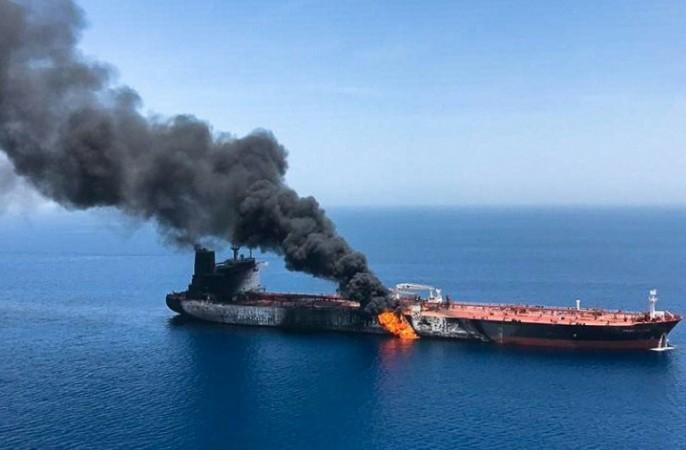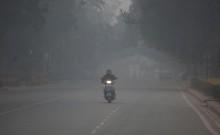
The Iranian Revolutionary Guards Corps (IRGC) has always been a thorn in the side of the United States, which has got wide-ranging interests to protect in the Middle East region.
Taking the situation from bad to worse, Yemen's Iran-backed Houthi terror network on Saturday attacked two major Saudi Aramco oil plants and subsequently an IRGC commander threatened America that its bases and aircraft carriers in the region were within range of Iranian missiles, media reports said.
Although several attacks were carried out by known and unknown terror groups allegedly linked to IRGC in recent months in the Gulf region, the tensions reached an alarming level after the Houthi group attacked two Saudi Aramco oil plants, knocking out more than half the Kingdom's output.
Experts believe that for the United States, which designated the IRGC as a foreign terrorist organisation earlier this year, it has always been a headache to deal with the elite Iranian military unit.
Iran's elite militia allegedly trains, funds, arms, and deploys thousands of fighters beyond the Persian country's borders. These include local insurgents as well as terrorist groups such as Hezbollah, which are responsible for scores of attacks against the US interest in the region. Hezbollah is an important terror network for such attacks, which could include kidnapping or direct attacks on the US infrastructure and personnel.
In fact, the Iranian militia continues to comprise a substantial part of the country's armed forces, but their influence extends far beyond raw combat capabilities. For instance, the group oversees Iran's ballistic missile program and has conducted several tests since the nuclear deal as well.
Gains Strength
With a humble beginning as a national guard in the aftermath of Iranian revolution way back in 1979, the IRGC has grown to gain strength over the past four decades to become an elite armed militia with 125,000 troops. While the Iranian Army is responsible for defending the country's government, the IRGC was conceived as a "people's army" meant to safeguard the ideals of the revolution against internal opposition.
The elite militia, which has become a key player inside Iran and outside the region, also controls the paramilitary Basij militia, which has about 90,000 active members, and runs the foreign special operations Quds force.
As a quasi-independent organisation working within the Iranian military, the IRGC's operations expanded to include naval, air force, paramilitary, special forces, and cyberwarfare roles.
Quds Force
However, the most dangerous one is Quds Force, an elite unconventional warfare unit that spearheads Iranian military and intelligence operations across the Middle East.
This unit, which has been a constant threat for the US interests in the Middle East, provides military aid and direct combat support to anti-US militants in several countries, especially Iraq and Afghanistan.
There is indeed no comparison between the Persian country, which has the world's fourteenth strongest army, and the superpower US in terms of raw military power.
But the IRGC, with its ability for unconventional warfare across the Middle East region, emerged as a challenge the US in ways that Iran's conventional military forces never could.

















